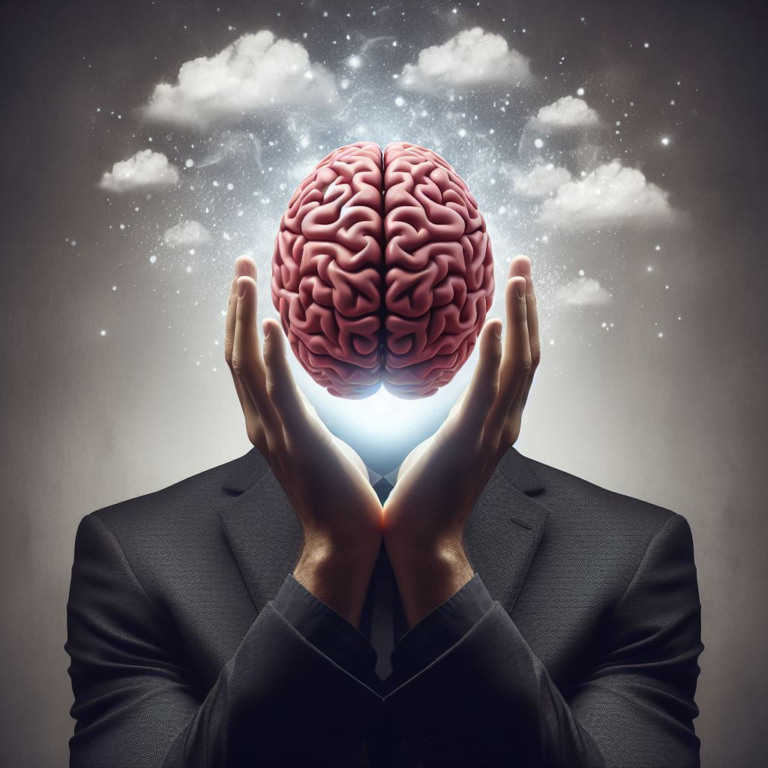I recently had a YouTube video playing in the office while working. I was paying little attention to it because I was working at the same time. But suddenly, my attention was diverted when the speaker in the video mentioned ‘The Mind-Body‘ problem.
Briefly stated the mind-body problem is an unsolved dilemma that scientists, neuroscientists, and philosophers cannot answer – where the conscious mind resides. This is a subject I knew nothing about, even though, as a medium, I was fascinated by the subject.
Later that day, I started researching the mind-body problem on the internet and found a lot of detailed papers covering the subject. But most of them were too complicated in language to understand.
I called upon one of the best AI apps to give me some answers. I asked the bot to give details in as plain English as possible and include links to where the information was gathered from.
After checking the resources for accuracy, I removed the links and references from the AI notes, for cosmetic reasons.
The mind-body problem is one of the most fundamental and enduring philosophical issues in the history of thought. At its core, this problem revolves around the relationship between the mind and the body, or more broadly, between mental phenomena and physical phenomena. The question essentially asks: what is the nature of the mind, and how does it relate to the physical world?
There you are, a better explanation than mine. But remember, I didn’t know anything about this topic and was intrigued to learn more. Be warned that this is where it becomes slightly more complicated to grasp. There are some philosophical terms we need to learn.
One of the earliest formulations of the mind-body problem can be traced back to the ancient Greek philosopher René Descartes, who proposed a dualistic view of the mind and body. According to Descartes, the mind and body are distinct substances: the mind is non-physical and immaterial, while the body is physical and extended in space. This view, known as Cartesian dualism, suggests that the mind interacts with the body through the pineal gland, a tiny structure in the brain.
However, Cartesian dualism faces several challenges. One of the most significant is the problem of interaction: if the mind and body are fundamentally different substances, how can they interact with each other? This question has led many philosophers to reject dualism in favour of monism, the view that there is only one fundamental substance in the universe.
Monism comes in various forms, the two most prominent being materialism and idealism. Materialism holds that everything, including the mind, is ultimately reducible to physical matter. According to materialists, mental states such as thoughts, emotions, and consciousness are nothing more than the result of physical processes in the brain. On the other hand, idealism argues that reality is fundamentally mental or spiritual in nature and that physical reality is ultimately dependent on the mind.
To summarise the above, some philosophers on this topic believed that the mind and the body are two separate substances that interact with each other, often thought through the pineal gland structure of the brain.
One of the challenges with this suggestion is how this interaction occurs. An alternative option was suggested because the philosophers could find no significant evidence to support the claim of dualism. This alternative theory became known as Monism.
Philosophers and scientists couldn’t entirely agree on the principles of Monism and this resulted in it being broken down into two more possibilities – materialism and idealism. There were, and still are, arguments supporting all of the theories, but none that everyone agrees on.
While materialism and idealism offer different solutions to the mind-body problem, they both face their own set of challenges. Materialism struggles to explain the subjective nature of conscious experience and the qualitative aspects of mental states, often referred to as “qualia.” Idealism, on the other hand, has difficulty accounting for the apparent stability and consistency of the physical world, as well as the existence of other minds external to one’s own.
In response to these challenges, some philosophers have proposed alternative views, such as neutral monism and panpsychism. Neutral monism posits that both mental and physical phenomena are ultimately reducible to a neutral substance or set of properties that underlie both mind and matter. Panpsychism, on the other hand, suggests that consciousness is a fundamental feature of the universe, present in varying degrees in all things, from subatomic particles to human beings.
Despite centuries of debate and speculation, the mind-body problem remains unresolved. Advances in neuroscience, psychology, and philosophy continue to shed light on the nature of consciousness and its relationship to the physical world, but many questions remain unanswered. Ultimately, the resolution of the mind-body problem may require a multidisciplinary approach that integrates insights from philosophy, science, and perhaps even theology. Until then, the mystery of the mind-body relationship will continue to fascinate and challenge thinkers across disciplines.
So the long and the short of it is that there are no known answers from the experts regarding the problem of whether the mind is separate from the body. Therefore as mediums connecting to the other side, we cannot throw light on how the mechanics of our craft works. It just does.
Most of the arguments debated by the experts are based on known biological and scientific rules. Perhaps mediumship and the ability to communicate with another intelligent consciousness are outside of that governing framework. Maybe the God element, as it is often referred to, will never be clearly understood.
While researching the Mind-Body problem, I learned of an academic who has spent much of his professional career pursuing answers. Professor Philip Goff is a modern-day idealist philosopher, author, and lecturer at Durham University, UK.
In Philip’s online profile, he states:
My main research project is trying to work out how consciousness fits into our overall theory of reality. I argue that the traditional approaches of physicalism (consciousness can be explained in terms of physical processes in the brain) and dualism (consciousness is separate from the body and brain) face insuperable difficulties. On the basis of this I defend a form of panpsychism, the view that consciousness is a fundamental and ubiquitous feature of the physical world. It sounds a bit crazy, but I try to show that it avoids the difficulties faced by its rivals.
Although a lot of complicated jargon comes from my research, the fundamental issue of the mind-body problem remains fascinating. I’ve bought one of the Professor’s books, which is now in my reading list. The book, “Why? – The Purpose Of The Universe” may help me with my knowledge.
Philip has a more open-minded approach in his work on this topic. He suggests that consciousness is the stuff of the universe and believes that consciousness is the first creation before the physical level is formed.
His views further align with ours as mediums when he suggests that a science-based experiment cannot solve the problem. He further believes that our own consciousness is merely a part of the universal consciousness. Isn’t that what we mediums already believe?
This article has been designed to help you start exploring this fascinating subject for yourself. Although you won’t necessarily find a definitive answer, the research will help arm you with a broader understanding of the philosophy, science, and arguments against or supporting your work as someone able to talk to the personalities of discarnate people.
All the facts quoted in this article have been cross-checked for accuracy, where AI was used to collate the information.













One Response
This is mind blowing/thought 💭 provoking, but does not include wave lengths and tuning in, different levels of consciousness, thus is a very chunky issue/debate you have now got your teeth into Trevor! Good Luck with it ALL. As for me I’m off to take some pain relief for my headache! Thank you Trevor!! Lol.